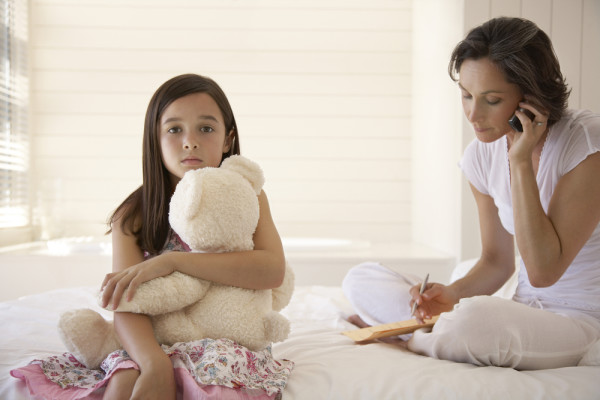You have your reasons for keeping your world beeping, but at what price?
You reinforce your phone habits daily, hourly, constantly. This makes them hard to alter, unless you can understand how much you stand to gain from such a tiny change in behavior.
Each time you’re alerted to a text or email–a weather alert, an appointment reminder, or a new “Like” you’ve been craving, you are further solidifying a habit of “living for the beeps.”
Yes, your job demands that you remain available. Yes, your friend expects you to drop everything and message her back ASAP.
The unchanging reality is that we’ve evolved to develop a phone appendage that will soon connect directly into our heads. So before there is no escape from digital reminders, why not build a healthy and grounding habit to make new technology less destabilizing?
Everyone knows the mental health benefits of silencing our beeps and vibrations, but we struggle to act on this awareness.
Baby Steps Toward Stress Management
So what can we do to become even one tiny step healthier?
Turn off all tones, reminders and vibrations on your phone or other frequently beeping screens for brief periods during the day.
Millenials, yuccies, and teenagers…I’m guessing you will probably either ignore this advice or roll your eyes, but that’s ok. Hopefully something will inspire you to make even a 1% change if you want to be happier.
Let’s start with 5 important reasons why you should go toneless and vibrationless for at least 30 minutes, twice a day:
1. No techealthy behavior requires less effort to complete.
All it takes is a simple flick of a switch and VOILA!!…you are free to choose when to engage your digital world.
2. Is there an easier way to remind you that you are in control of your life (and your digital world?)
You get to CHOOSE when to look at your phone, as opposed to giving other people the power to interrupt you and have their needs met.
3. A ringerless half-hour counters the anxiety-heightening effects of response demand (the expectation by the sender or the recipient of a fast response.)
It promotes a more peaceful existence and a quieter mind. If you’re prone to anxiety, this is a perfect place to start. The mental health benefits are likely to be immediate.
4. I am certain that when you eliminate beeping interruptions, your level of concentration will improve during that time.
How often do digital tones yank your attention away from what you’re focused on? If you’re prone to attentional difficulties, this can be a game changer for you.
5. It reduces the digital indoor noise pollution problem.
How many times have you been inconvenienced by someone’s phone beeping near you? Are you the one who is disrupting the peace? Contribute to other peoples’ peace of mind by finding your own.
Conclusion: All it takes is choosing small chunks of time in which you can’t be reminded by any of your screens that someone wants your attention. Make it a conscious process.
What’s the price you pay for living in a world where beeps rule?
For one thing, your stress and anxiety levels are certainly higher with beeps constantly interrupting and demanding a rapid response. High anxiety is at least partially the result of holding yourself and others to a high standard of rapid responding. Often times these expectations are unreasonable and they demand that you live a fast-paced life just to keep up with other beep-hungry people, even when your mind and body are begging for a slowdown.
There’s something unnatural about this lifestyle choice, especially when you live this way all day and all night. Yes, many jobs demand that you remain digitally on call and there’s not much you can do about it. For those of us who aren’t bound to keep the sound on our phones on all and all night, make a choice to have periods of the day, even 15 minutes, in which you silence your phone. Then go back to your beeps.
The ultimate sign that you’ve let the beeps rule your life is when you sleep with your ringer and text tones on. Unless your in the midst of an emergent situation, sleeping with the volume on basically means that your sleep isn’t precious to you. Let’s put it this way…a respiratory therapist once said to me that we’re born with a certain number of breaths we can take during our lifetime. Sleep slows down our breathing. Habits that disrupt our sleep promote faster breathing. (I would argue that people who live with beeping all day long probably breathe faster than people who have their phones on silent for much of the day.)
Exert your free will to choose when your attention will shift toward your phone. It’s as simple as that. In order to do that, I recommend a period of time in the day or night in which you put your phone on silent or turn it off completely. Give the important people your home number and get up to check your phone if you must. This peace of mind is worth the price of a home phone line.
Installing periods of beeplessness promotes important skills required for a healthy and hopeful life: patience, the ability to handle uncertainty, the ability to focus, and greater self-control that keeps us from needing to satisfy every urge we have.
Try it. You’ll notice a difference in your mental state if your life tends to be dictated by beeps.
Good luck. This probably won’t be easy to change for most people, but it’s so worth a try or three.




